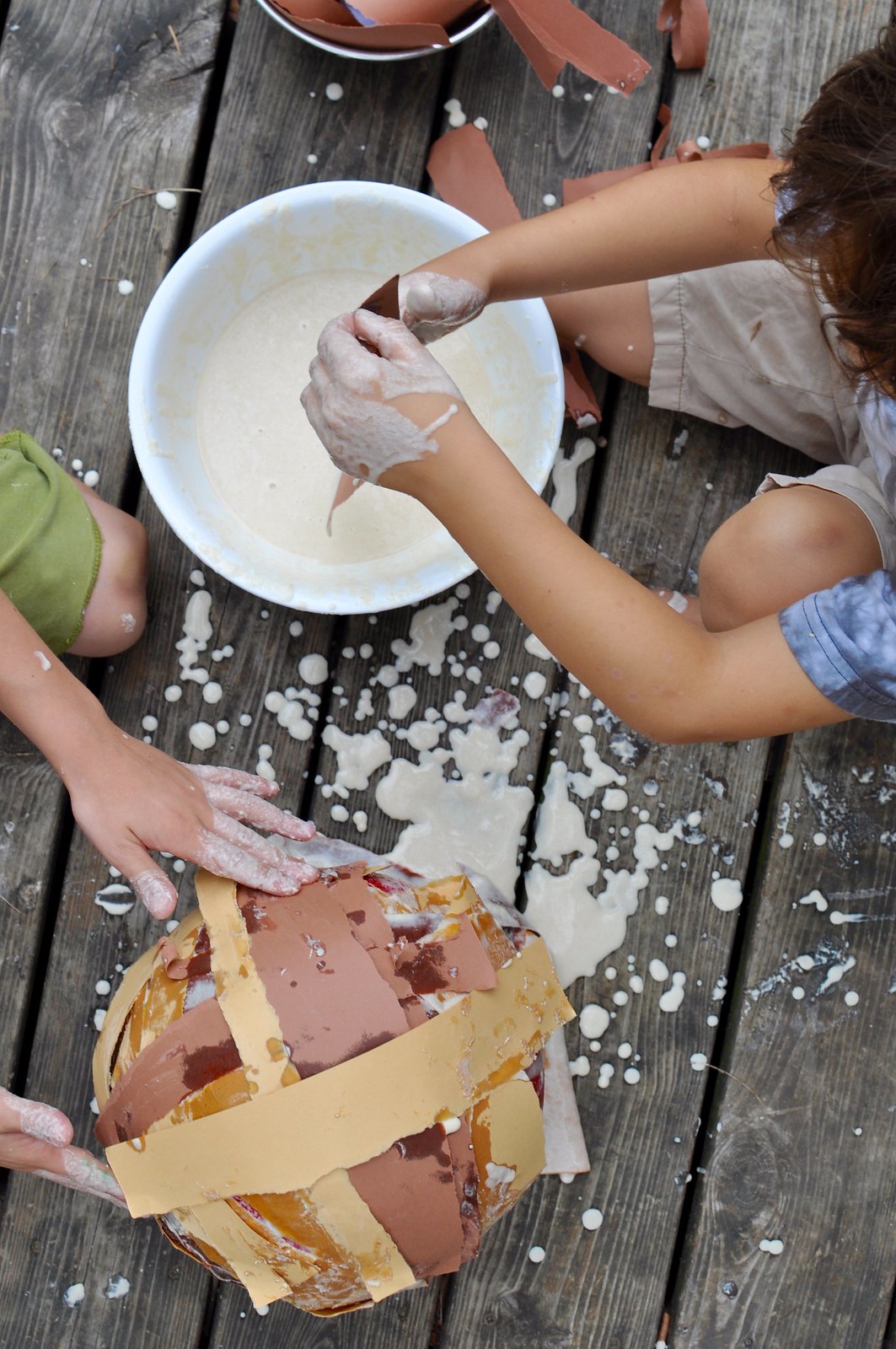 Over the weekend, Oliver informed me that he was going to make a bowl out of paper mache. I looked up a quick recipe (flour and water until a pancake batter-like texture is achieved) and watched him, but other than that, I left him to it. I watched as he shredded construction paper, blew up a balloon, and carried it all outside onto our back deck. Milo, curious, quickly joined him.
Over the weekend, Oliver informed me that he was going to make a bowl out of paper mache. I looked up a quick recipe (flour and water until a pancake batter-like texture is achieved) and watched him, but other than that, I left him to it. I watched as he shredded construction paper, blew up a balloon, and carried it all outside onto our back deck. Milo, curious, quickly joined him.
The two of them experimented with dipping the paper and applying it in layers to the balloon. They failed over and over again. First, they didn’t remove the excess liquid from the papers and the whole slimy mess slid off the top and sides of the balloon. They had to start completely from scratch, and on the next go, they didn’t add enough liquid, so the paper refused to mold to the curvature of the balloon.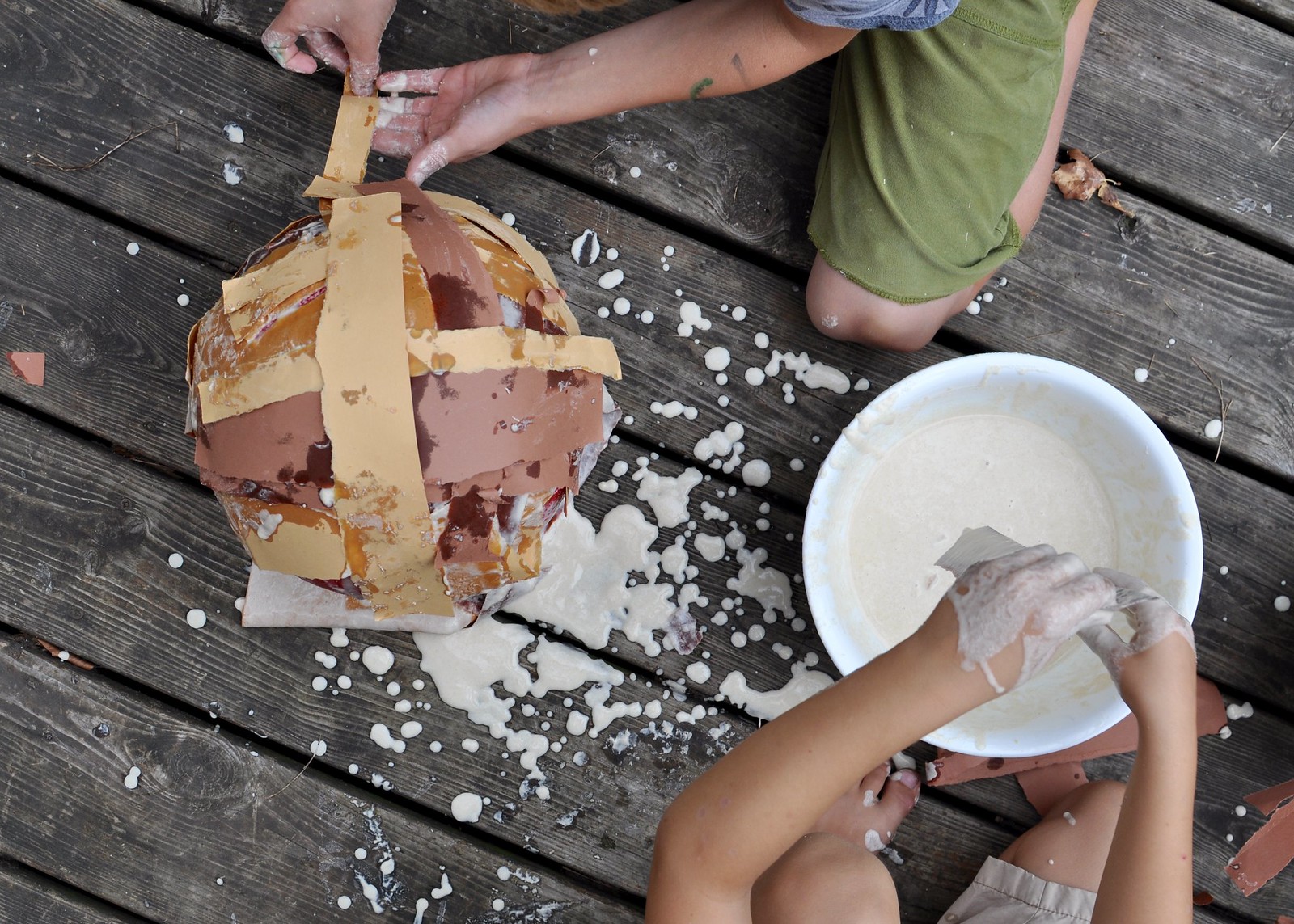
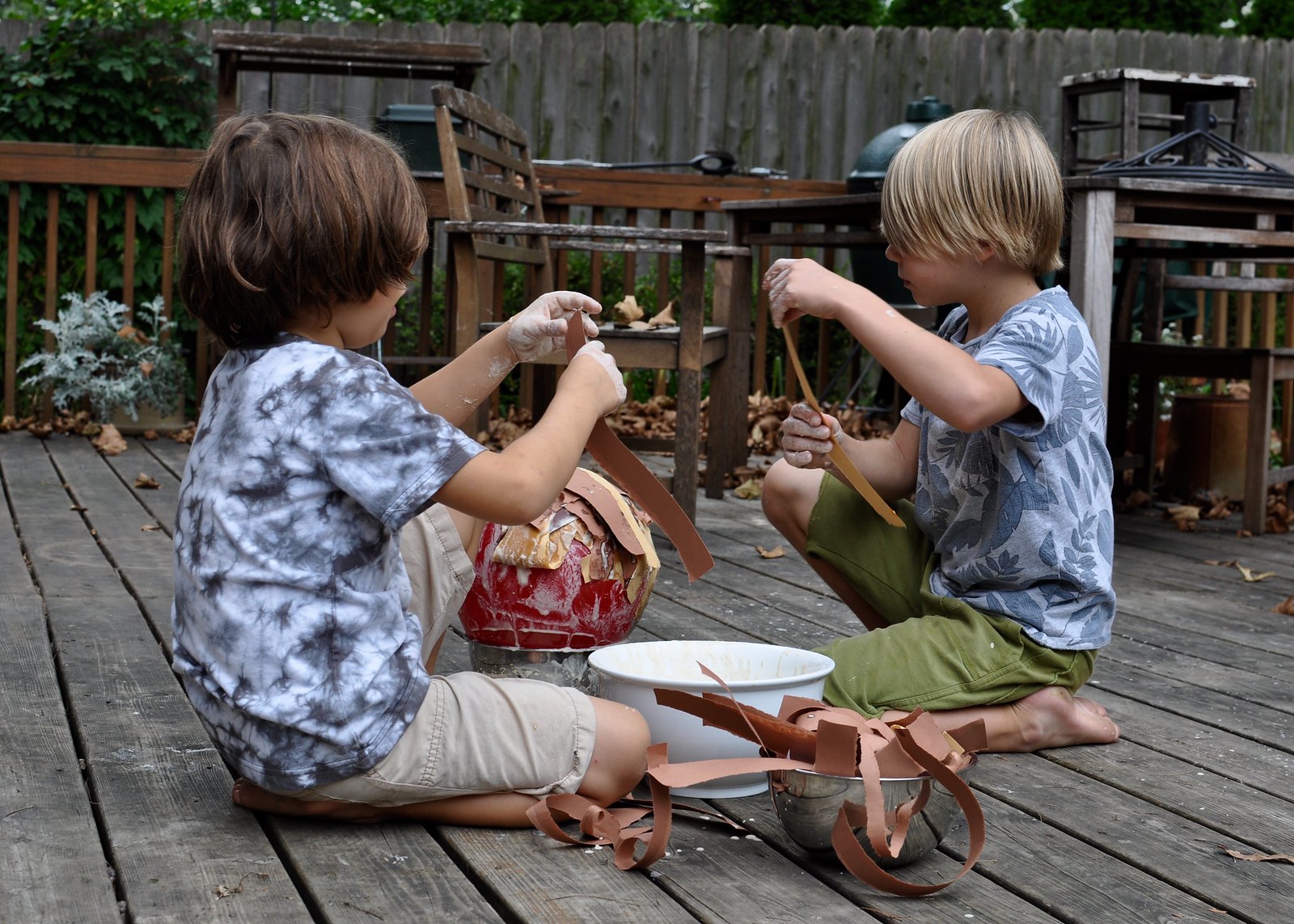 It was a disaster. But I did not intervene, even though I know the right way to do this — how to dip the paper in, then gently lift and slide your fingers down the length of the paper to remove all excess liquid before applying it in a pattern to maximize strength of structure, etc. This sort of thing used to bother me, but this time it was easy to leave them alone. They were happy, they were curious, they were learning; they were learning from their mistakes.
It was a disaster. But I did not intervene, even though I know the right way to do this — how to dip the paper in, then gently lift and slide your fingers down the length of the paper to remove all excess liquid before applying it in a pattern to maximize strength of structure, etc. This sort of thing used to bother me, but this time it was easy to leave them alone. They were happy, they were curious, they were learning; they were learning from their mistakes.
The Montessori method believes in giving children freedom, and with freedom comes the inevitable mistake. The goal is for the child to recognize and realize errors, then correct them on their own. Children are not “malfunctioning machines for us to ‘correct’ — they are people and deserve the dignity of discovery and self-correction. Humans learn from their mistakes, so we must permit children to make them.” Quote found here. 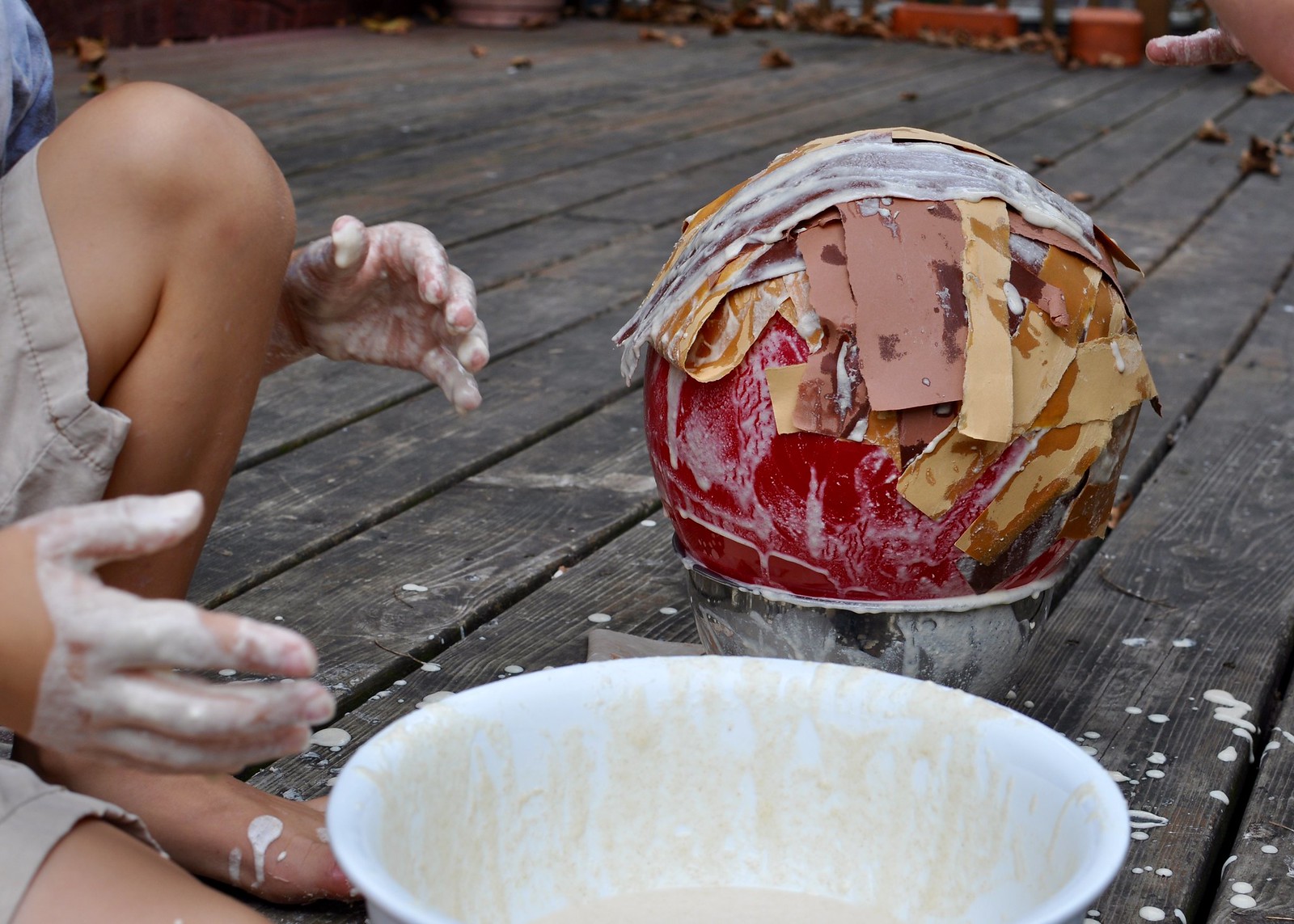
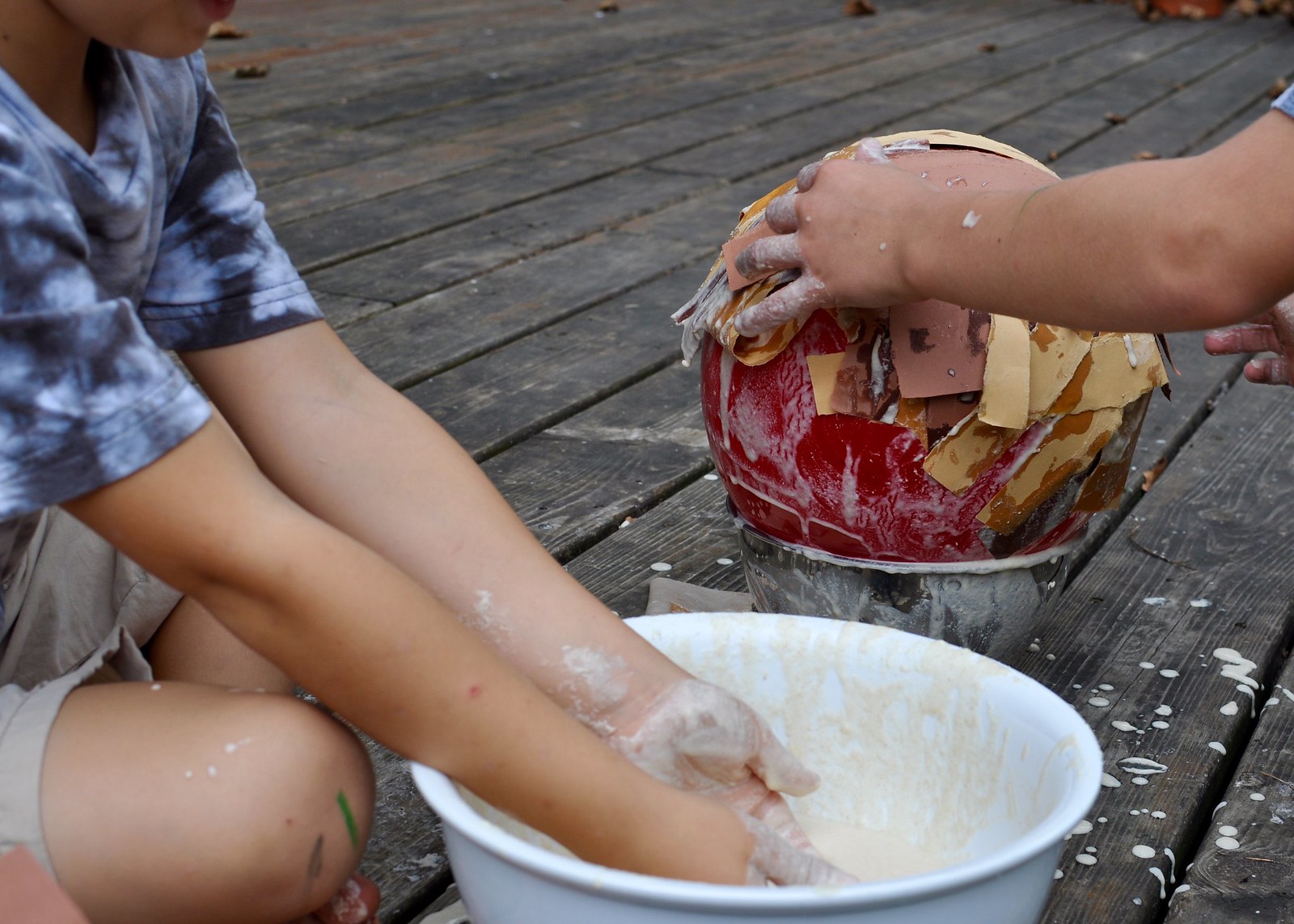
Mistakes are important. They allow children to experiment, discover, and explore their options; they allow children to be creative. Especially at home, experimenting with a craft like this and making mistakes during the process is the whole point; it isn’t as much about the results as it is the learning. Next time, they’ll have a better idea of what works and doesn’t work. If they ask me to help, I’ll be happy to. But I love the confidence they build when they figure it out for themselves. And maybe next time, they’ll get it. All by themselves.

Yes! 1,000xs yes!
It’s statically proven that kids who develop ‘grit’ and expect that failure is part of the learning process go on to live happier and more successful lives. Dr. Tom Hoerr has written some really brilliant books and articles on this.
Love this! Making mistakes is hard for anyone at any age, and it’s amazing that your kids can be so resilient about it. WTG!
I could not agree more and yet for me it is so much easier said than done. Let’s just say, this mama is working on it! 🙂 xx